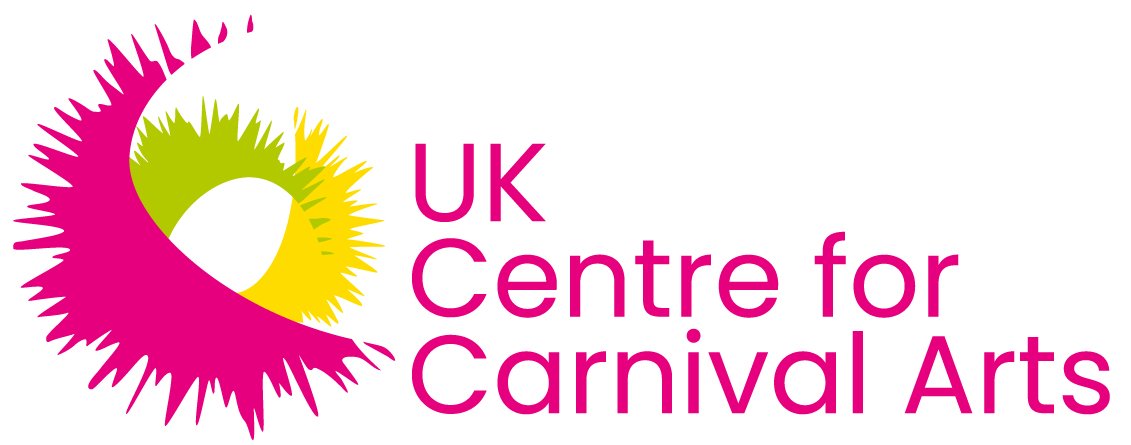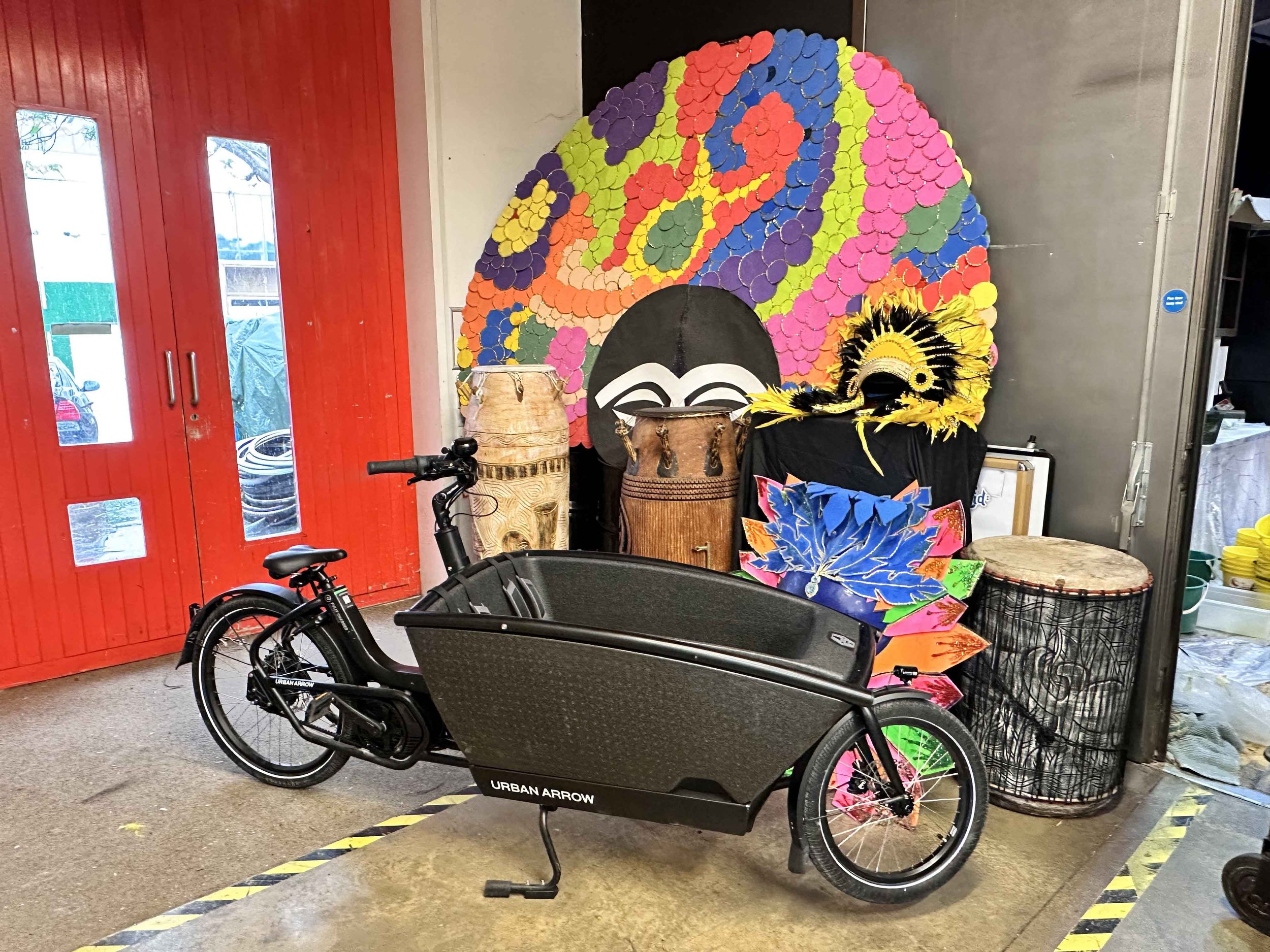Movement Towards Net-Zero Floats
In many UK carnivals including Luton Carnival, diesel-powered trucks and floats have become common place, providing the necessary infrastructure to support elaborate and vibrant parade displays. However, the use of diesel trucks as floats in carnival parades presents several environmental issues that merit consideration.
Firstly, diesel engines emit pollutants such as nitrogen oxides (NOx), particulate matter (PM), and carbon dioxide (CO2), contributing to air pollution and climate change. Carnival parades often involve prolonged idling and frequent starts and stops, exacerbating emissions from these vehicles (Smith, 2020).
Moreover, the sheer size and weight of trucks used as floats can cause damage to roads and infrastructure, particularly in areas not designed to support heavy vehicles. This can lead to increased maintenance costs and environmental degradation (Johnson, 2021).
Furthermore, diesel trucks typically have lower fuel efficiency compared to modern passenger vehicles or alternative fuel options, resulting in higher fuel consumption and greenhouse gas emissions per mile travelled (Brown, 2019).
Addressing these environmental issues requires considering alternative float designs and propulsion methods. Electric or hybrid vehicles, powered by renewable energy sources, offer cleaner alternatives to diesel trucks. Additionally, promoting smaller, lighter floats or incorporating sustainable materials and technologies can reduce the environmental footprint of carnival parades while maintaining their festive spirit (Green, 2022).
We set the goal to eliminate all diesel-powered trucks for Luton Carnival 2024. However, due to challenges in finding an affordable and readily available electric truck and green power solution that could meet the power needs of one of the participating groups, we were only able to remove all but one truck.
Considering the needs of the other participant groups, we conducted extensive research into green float solutions and alternatives.
Push Floats
Push floats are an integral part of many UK carnivals and parades , are beautifully decorated mobile structures, manually propelled by participants. Rooted in historical traditions dating back to medieval pageants and fairs, they add a charming, nostalgic element to contemporary festivities. These floats not only enhance the visual appeal of parades but also foster community engagement, promote local talent, and uphold cultural heritage, making them indispensable to UK carnival traditions.
Many of our UK partners and peers utilise push and cycle-powered floats. Paraiso School of Samba, well-known in the UK for their push floats, draws inspiration from their Brazilian roots, bringing the vibrant flavor of Rio to the streets of the UK with their large-scale push floats. Paraiso regularly participates in the Luton Carnival. During our project investigations, Paraiso demonstrated their push float kit for us , and we are currently in discussions about future training and collaboration to enhance the development of push floats at the Luton Carnival.
We also met with Emergency Exit Arts, pioneers in creating innovative mechanical puppets and floats that combine artistry with mobility. Their floats are usually electric, using large rechargeable batteries that give mobility and a powerful sound. Their puppets are designed to deliver dynamic performances in diverse locations, blending visual spectacle with accessibility. This innovation allows for spontaneous and engaging street theatre, reaching wider audiences and transforming public spaces into stages. They showed great interest in the project and expressed enthusiasm for future collaborations.
Through our existing network we also noted best practice from Handmade Parade renowned for their tradition of creating cycle-powered mini floats and puppets, which bring vibrant, handcrafted art to life. Their parades foster community spirit and creativity, transforming public spaces with colorful, dynamic displays. This impactful approach promotes sustainability while engaging and inspiring diverse audiences.
In 2023, Luton Carnival featured a cycle-powered Giant Squid by Festive Road. Based in Milton Keynes, Festive Road was a vibrant community arts organisation known for its large-scale public art and participatory projects. However, in early 2024, they announced their closure and informed us that several of their large-scale cycle-powered puppets, in need of repair, were to be scrapped. To preserve their artistic legacy and prevent waste, we acquired many of these puppets. Unfortunately, we couldn't restore them in time for Luton Carnival 2024, but we plan to have them ready for Luton Carnival 2025. The potential value of these puppets, estimated in the tens of thousands, significantly advances our green float developments.
Using push and cycle-powered floats in carnival parades offers significant environmental benefits compared to traditional diesel-powered floats. These eco-friendly alternatives reduce carbon emissions and air pollution, contributing to cleaner air quality in parade routes and surrounding areas (Smith, 2021). By utilising human-powered propulsion methods like pushing or cycling, these floats promote physical activity and community engagement, enhancing the parade experience while advocating for sustainable transportation practices (Johnson, 2020).
Moreover, push and cycle-powered floats are typically lighter and smaller in scale, minimising their impact on roads and infrastructure. They also demonstrate innovative approaches to reducing environmental footprints in public celebrations, inspiring communities to embrace sustainable solutions beyond carnival festivities (Brown, 2019). Overall, integrating push and cycle-powered floats aligns with global efforts to mitigate climate change and promote sustainable living, making carnival parades more environmentally responsible and enjoyable for participants and spectators alike (Green, 2022).
Shopping trollies
As sizable push floats are bespoke, they are also costly. We extensively explored smaller and more affordable alternatives, including various trailers, electric-powered buggies, and logistic solutions. However, we found that even the affordable options were too expensive to provide for all participating groups and required significant adaptations, which would further drive up costs. Ultimately, we concluded that the humble shopping trolley was our best solution for Luton Carnival 2024.
Using shopping trolleys as mini floats in carnival parades offers creative and sustainable benefits. These trolleys, repurposed as floats, reduce waste by giving new life to everyday objects, thereby contributing to environmental sustainability (Smith, 2021). They also symbolise resourcefulness and community spirit, encouraging participants to create imaginative and cost-effective parade entries (Johnson, 2020).
Additionally, their small size and manoeuvrability make them practical for navigating parade routes, contributing to the overall vibrancy and diversity of carnival celebrations (Brown, 2019).
A total of 21 trolleys were decorated and entered the Luton Carnival 2024 parade, with 15 generously provided by Tesco. These trolleys were adorned in various creative ways and proved to be a crowd-pleaser. Many supported large-scale puppets and costume pieces, pushed by community group members who typically avoid big costumes due to lack of confidence and experience.
E-cargo bikes
Through our research into push float options, we discovered a UK-wide e-cargo bike initiative. In response to the escalating challenges posed by urban congestion, air pollution, and climate change, local authorities in the United Kingdom have increasingly turned to innovative solutions to promote sustainable urban freight transport. One notable initiative gaining momentum is the implementation of e-cargo schemes. These schemes involve the use of electric cargo bikes and vans for last-mile deliveries, offering a promising avenue to reduce emissions, improve air quality, and enhance overall environmental sustainability (Smith, 2020). E-cargo schemes involve the deployment of electric cargo bikes and vans to facilitate deliveries within urban areas. Local authorities are actively supporting and sometimes spearheading these initiatives, aiming to address the negative environmental impacts associated with traditional delivery vehicles. Electric cargo bikes, in particular, are gaining popularity due to their manoeuvrability, reduced emissions, and cost-effectiveness for short-distance deliveries (Johnson, 2021).
One innovative approach gaining traction is the utilisation of e-cargo bikes for logistics and transportation during carnival parades. This not only aligns with the broader trend of sustainable event management but also showcases the versatility and eco-friendliness of electric cargo bikes in diverse settings (Brown, 2022).
In partnership with Luton Council we accessed and utilised Luton’s e-cargo bike scheme, resulting in seven e-cargo bikes participating in the Luton Carnival 2024 parade, transporting green sound solutions. While the e-cargo bikes are robust and handled the weight of the sound systems well, their heaviness meant that only experienced riders could operate them, limiting the number of available riders. Our investigations with Luton Council have revealed the potential to train local residents, thereby creating local employment opportunities.






